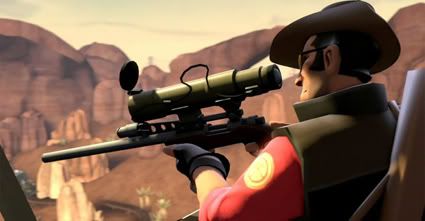
The story of how I acquired a Kindle is best told in person, so it will not be reiterated here. Having spent about a week with the device, I can safely draw two conclusions about it:
Yes, it’s a great way to get books & stories to people on the cheap with convenience and a bit of flair.
No, it will not replace printed books.
In a bit more detail, e-readers like the Kindle have made it easier than ever for people to both produce and acquire new stories to enjoy. The readers (the people, not the devices) can access libraries of books, reams of text, from just about anywhere, even on the 3G-less WiFi versions. Catering to a wide variety of tastes and interests just like your local bookstore does, without the hassle of actually travelling to and from said store while balanced with a lack of things I’ll get to later.
As for the writer, those interested in making a foray into self-publishing have never had it more easy. You can finish a final draft (or what you think is a final draft), set a price point, hit Upload and BAM, instant readership. Only that’s a lie. You need to promote the work yourself, without the help of others from a publishing firm or an agency. And speaking of agencies, unless you hire an editor (other than your mother) it’s unlikely you’ll get many favorable reviews to help drive your sales. This is also a problem for those authors that do edit their work, because for every well-polished gems there’s at least a couple dozen unrefined turds sitting in the e-store. Which leads us back to promotion and marketing of one’s own work. Self-publishing’s been discussed more extensively elsewhere, so point your eyeballs in this direction for more on that.
As to why the Kindle will never replace the actual printed word, as much as I appreciate the convenience of firing up the device to pick up Margaret Atwood’s Oryx and Crake exactly where I left off, I do find myself missing the heft, the reality, of a real book in my hands, especially when it’s a book on the Song of Ice and Fire scale. Sure, it’s more convenient for flights and busses and whatnot, and this might be yet another indication that I’m quite the old fart, but the weight of an actual text is something of a comfort. I’ve been interested in the written word for as long as I can remember, and as much as I’m glad to see technology like the Kindle around, I’m not going to give up buying actual books any time soon.
After all, when December rolls around and the cataclysm takes place that rends modern society asunder, we won’t have much power for Kindles and we’ll need to rely on old-fashioned dead trees, won’t we? And not just for reading.
I say we burn the books of Stephanie Meyer, Richard Knaak and Glenn Beck first. Gotta cook our post-apocalyptic mutant rat steaks somehow, right?





